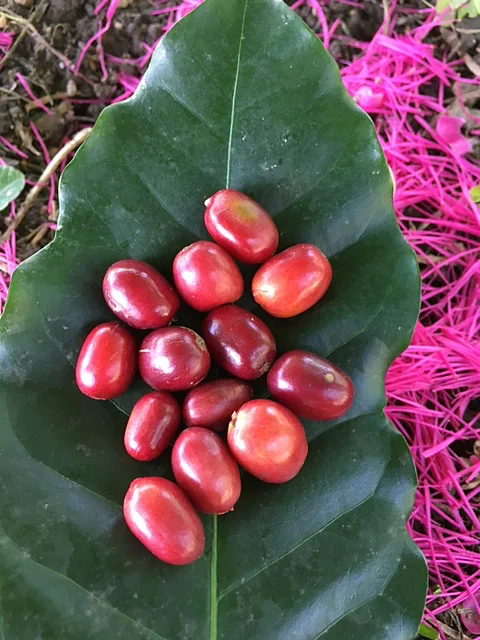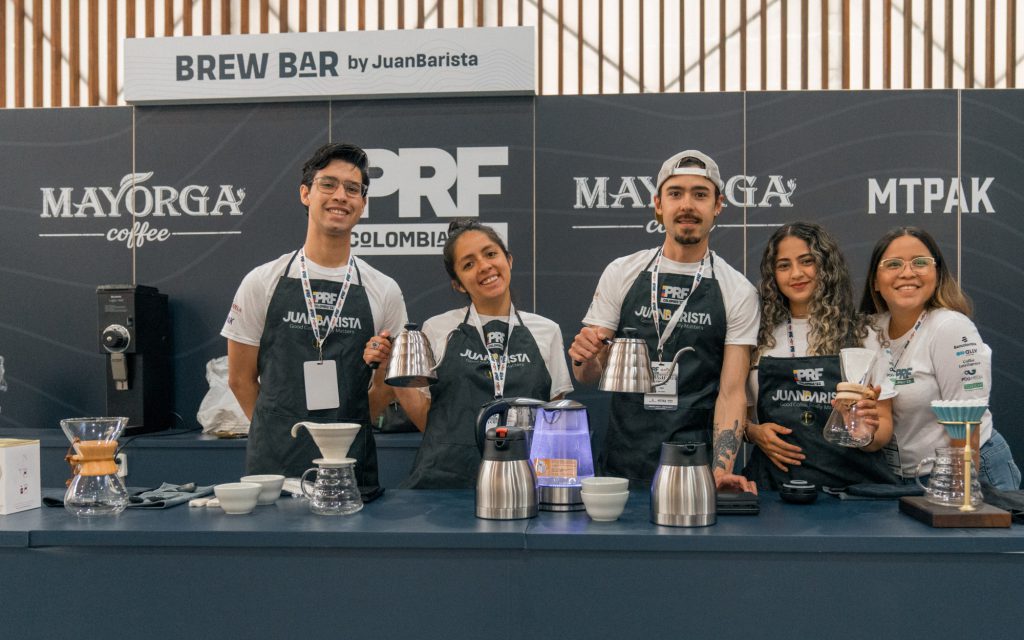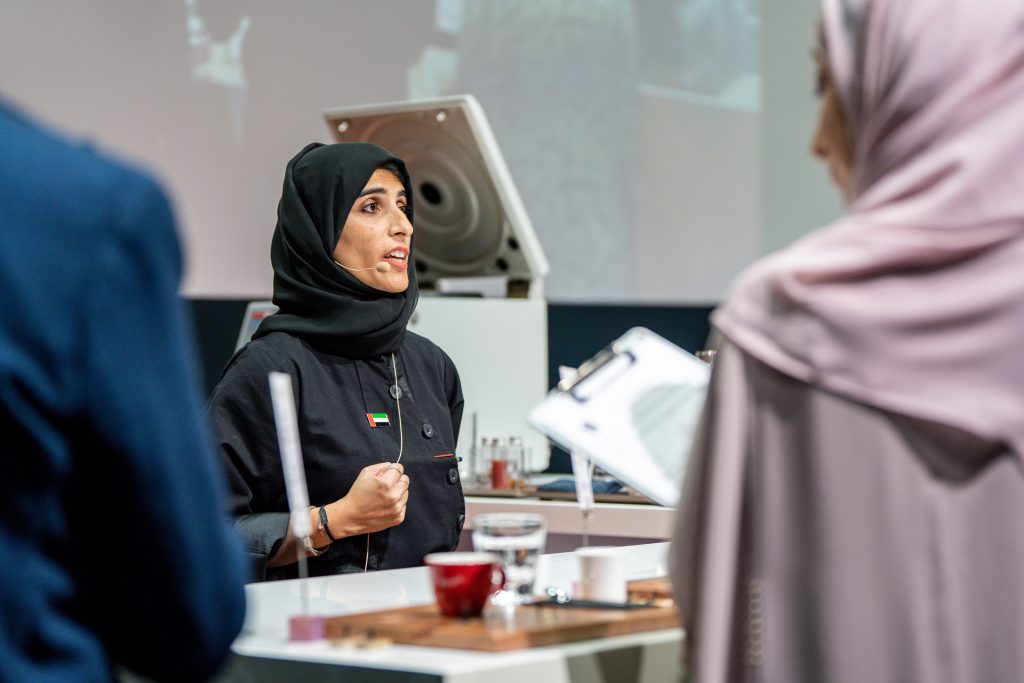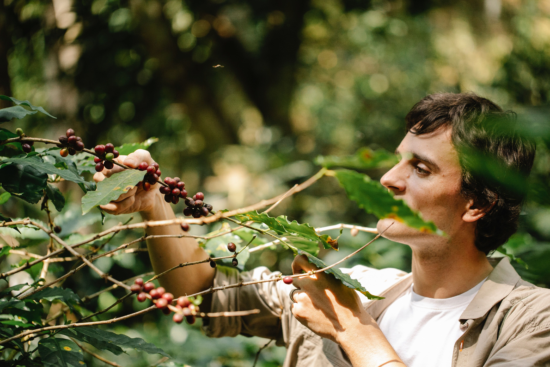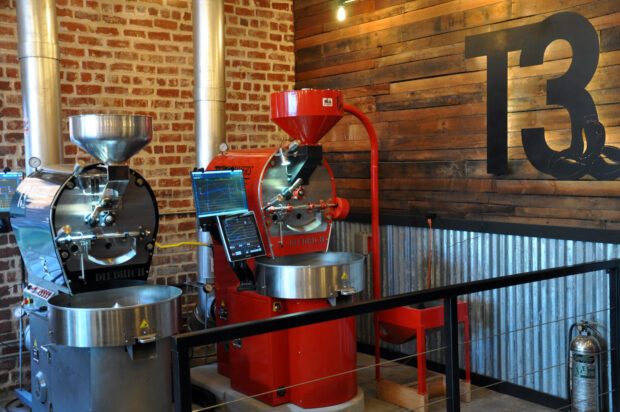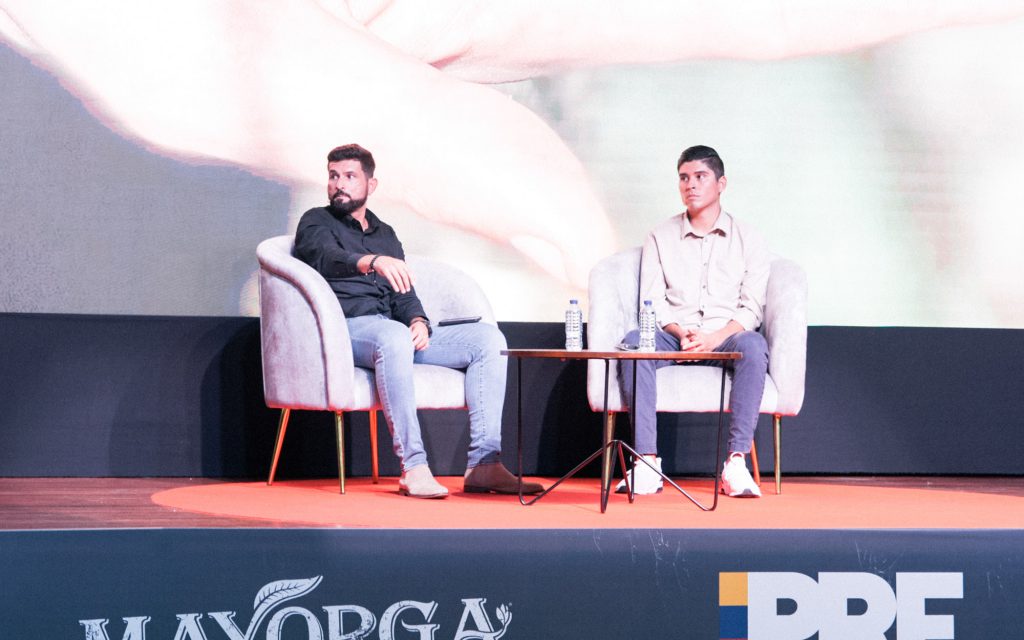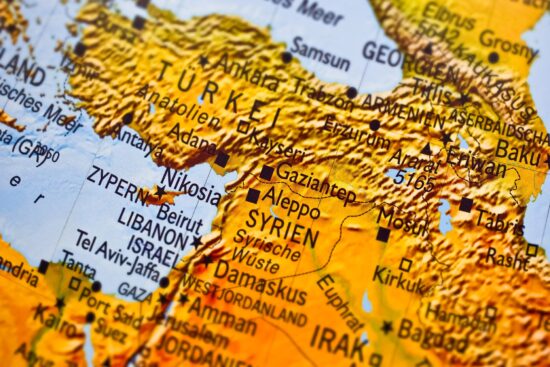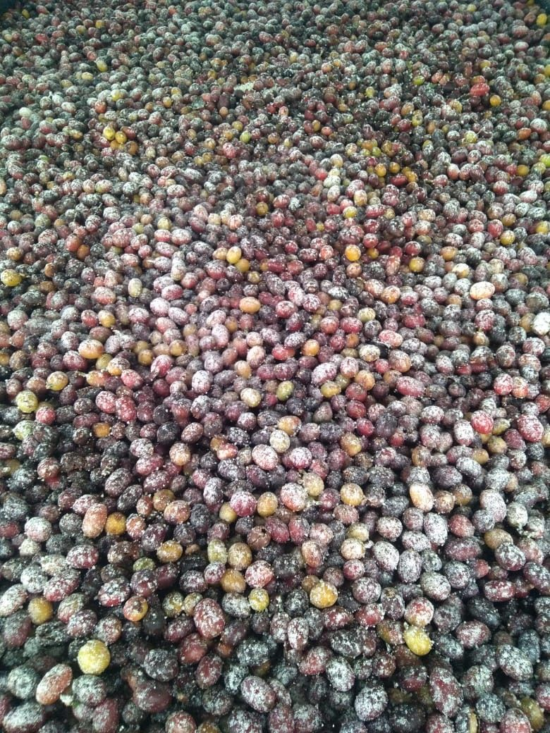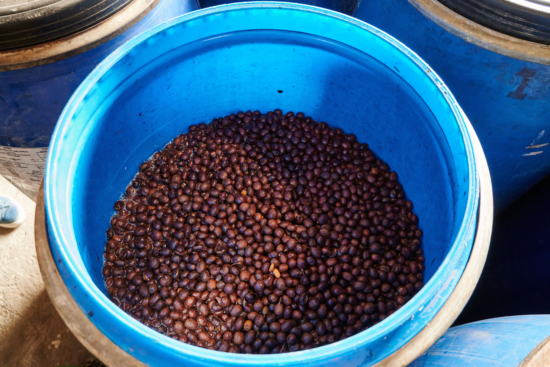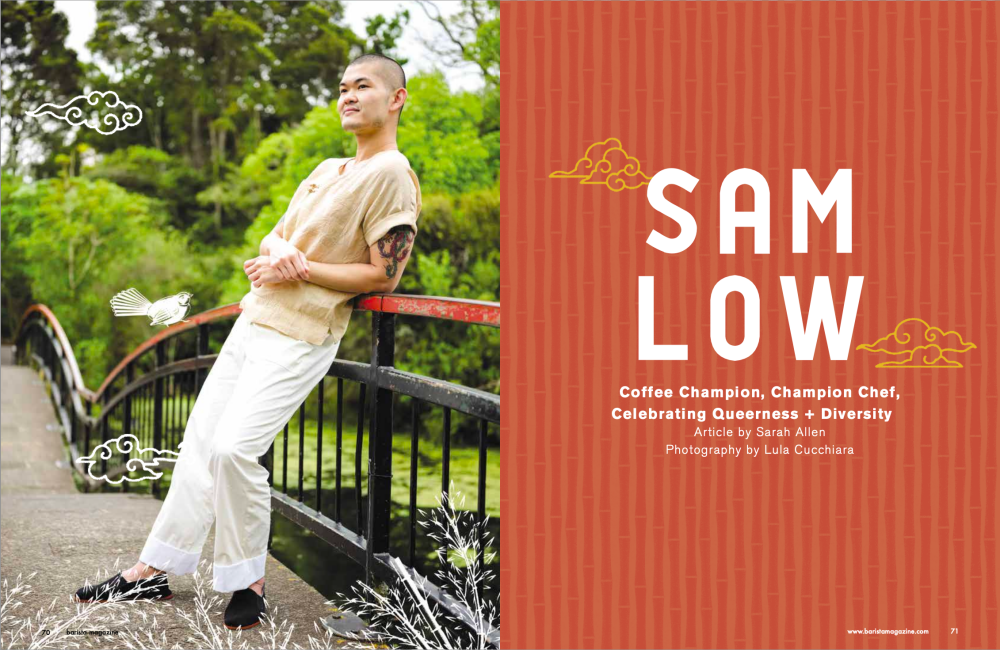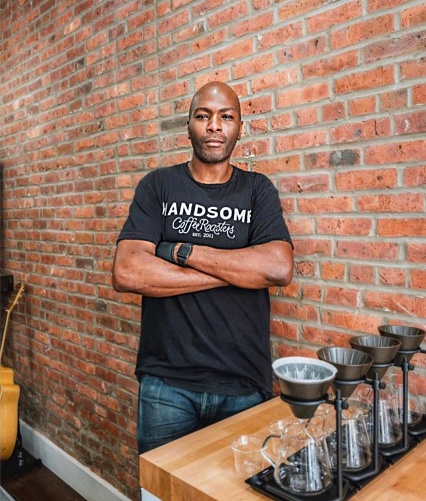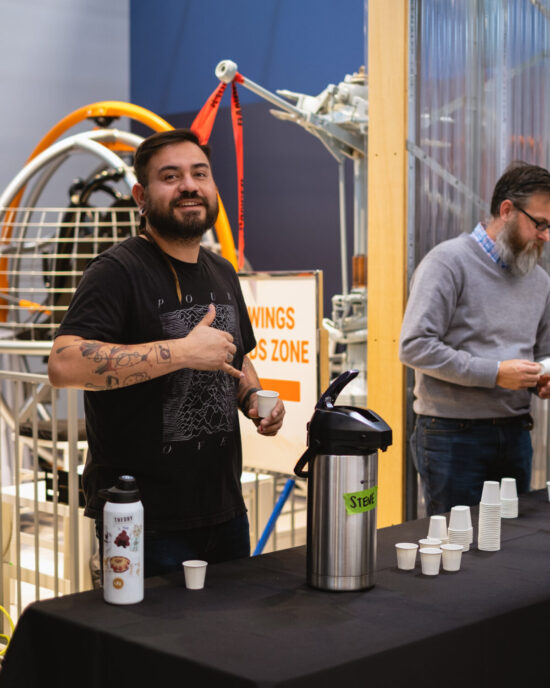This is the absolute fastest way to make French press iced coffee. Just forget about cold brew concentrate – with this Quick French Press Iced Coffee Recipe you can have your iced coffee ready in 5 – 6 minutes. Who doesn’t like the French press?! It’s...
The coffee industry’s biggest competition: The story of the World Barista Championship
The coffee industry’s biggest competition: The story of the World Barista Championship
The coffee industry’s biggest competition: The story of the World Barista Championship
The coffee industry’s biggest competition: The story of the World Barista Championship
The coffee industry’s biggest competition: The story of the World Barista Championship
The coffee industry’s biggest competition: The story of the World Barista Championship
I Tested Keurig K Compact – Here’s Everything You Need To Know
The most affordable Keurig coffee maker is available exclusively at Walmart and comes at a sweet price of only $59.00. In this article, you’ll find out how good it really is, and also find additional information like how to clean it, or do you need a water...
Here’s How to Change Keurig 2.0 Water Filter Easily
Not sure how to change Keurig 2.0 water filter? Here are step-by-step instructions that will help you do it quickly and easily. Keurig water filter should be changed every 2 months or 60 tank refills. The water filter is located inside the water tank, on the valve at...
The coffee rose for assessing Anaerobic coffee
I just came across this really neat tool to assess anaerobic coffees. I haven't used it for cupping yet. I'm not sure I will like it either because the idea of lowering the score of the coffee just because it tastes has some thyme flavors. At the same time I...
Three US Coffee Championship Events Are Heading To Rancho Cucamonga
This article is from the coffee website Sprudge at http://sprudge.com. This is the RSS feed version. The 2024 US Barista Championship, Brewers Cup, and Cup Tasters will take place March 15-17 at Klatch Coffee Roasters in Rancho Cucamonga, California.
The Origin Story of Turtle Island Coffee in Vancouver, B.C.
A new Indigenous-owned coffee company based in Vancouver, British Columbia, called Turtle Island Coffee has launched with the goal of exposing more people to high quality specialty coffee and Indigenous...
Get Ready for The Barista League’s 2024 Season
The Barista League has announced 12 competitions across four continents. BY J. MARIE CARLANBARISTA MAGAZINE ONLINE Photos courtesy of The Barista League When The Barista…
Get Ready for The Barista League’s 2024 Season
The Barista League has announced 12 competitions across four continents. BY J. MARIE CARLANBARISTA MAGAZINE ONLINE Photos courtesy of The Barista League When The Barista…
Get Ready for The Barista League’s 2024 Season
The Barista League has announced 12 competitions across four continents. BY J. MARIE CARLANBARISTA MAGAZINE ONLINE Photos courtesy of The Barista League When The Barista League announces new events, it’s worth paying attention! This year, the schedule will be...
Weekly Coffee News: EUDR and Africa + More Celebrity Coffee
Welcome to DCN’s Weekly Coffee News. Keep up with all the latest coffee industry stories and career opportunities by subscribing to DCN’s newsletter. Tell our editors about your news here. Report: Small-Scale Farmers in...
Do Higher Coffee Prices Mean More Money For Farmers? A Story From Sumatra Shows It’s Complicated
This article is from the coffee website Sprudge at http://sprudge.com. This is the RSS feed version. Since coffee costs more now than ever, do those coffee prices impact the amount of money earned by coffee farmers?
Coffee News Recap, 2 Feb: Applications open for Australia’s Richest Barista 2024, De’Longhi reports 4.6% revenue increase after La Marzocco move & other stories
Every Friday, Perfect Daily Grind rounds up the top coffee industry news from the previous week. Here are this week’s coffee news stories. The word of the week is: expansion. Mon, 29 Jan AeroPress launches limited-edition Clear Pink brewer. The coffee brewer is made...
Watch The 8 Best Coffee Videos Vying For Sprudgie Awards
This article is from the coffee website Sprudge at http://sprudge.com. This is the RSS feed version. The best coffee videos from 2023 featuring Cafe Imports, Aramse, Nguyen Coffee Supply, Wildly, Mirror Coffee Roasters, Alto Stories, Quek Shio, and Cafe Retiro.
Robusta is great and has untapped potential
I live in the US and my typical choice of coffee is lightly roasted Ethiopian pour overs. I generally love acidity and fruit flavors in my coffee. My experience with Robusta has often been poor. Very dark, roasty and maybe chocolatey. I participated in the Hoffman...
Design Details: Brewing Reinvented at ULA Café in Melbourne
Welcome to Design Details, an ongoing editorial feature in Daily Coffee News focused on individual examples of coffee shop architecture, interior design, packaging design or branding. If you are a coffee...
Robert Downey Jr.’s New “Happy Coffee” Is Really Depressing
This article is from the coffee website Sprudge at http://sprudge.com. This is the RSS feed version. Robert Downey Jr. and Craig Dubitsky team up for Happy Coffee.
Out Now: The February + March 2024 Issue of Barista Magazine!
In our new issue we feature Lisa Lawson from Glasgow, Scotland, take a look at the newest grinders, explore spring drink inspiration, see how more women are getting involved in coffee tech, and much more! BY SARAH ALLENBARISTA MAGAZINE We’re stoked to announce the...
The 2023 Specialty Coffee Transaction Guide Has Landed
The 2023 edition of the Specialty Coffee Transaction Guide (SCTG) guide went live today, providing actors throughout the coffee chain a data-driven tool for green coffee price discovery. The full...
Espro great until I needed replacement filter ☹️
I've had an Espro P7 for nearly four years after seeing glowing praise on this sub (to which I later contributed). Before I bought the P7 I looked at the replacement parts available and they seemed like a solid company in that they sold e.g. replacement filters...
New Bill Requires More Kona In Your Kona Coffee
This article is from the coffee website Sprudge at http://sprudge.com. This is the RSS feed version. Currently a coffee only need to be 10% Kona to be labeled as such.
What’s the best and worst part about owning and running a coffee shop?
I'm not interested in getting into it myself, as I have no experience in the service industry, no real appetite for risk and no desire to run a business in general. But sometimes I think about it and I wonder what's the most enjoyable thing about it and...
minimum dose size?
I use the Hario switch to brew my coffee and am trying to reduce my caffeine consumption. Hence I would like to brew smaller cups of coffee. I am currently using 10g of coffee with 160g of water. (1:16 Ratio) I am wondering if there is a minimum amount of coffee...
[CAFE OWNERS] Background before starting a shop?
I’ve worked in coffee for 6 yrs as a barista and shift supervisor and have passion for it. I’ve decided that I want to open my own place in the future and so I’ve been doing the research to make a business plan. Lately, however, I’ve begun to realize just how many...
4 Cool Cafés to Try Out in Kuala Lumpur
The Malaysian capital is often visited in a hurry, but visitors who take the time to explore will discover a welcoming city, thanks in part to its friendly specialty cafés. BY TANYA NANETTI SENIOR ONLINE CORRESPONDENT Photos by Tanya Nanetti Kuala Lumpur, the capital...
The coffee industry’s biggest competition: The story of the World Barista Championship
Every year, the global coffee industry gears up for one of its most exciting and groundbreaking competitions: the World Barista Championship. For more than two decades, the WBC has been one of the biggest catalysts for change and innovation in specialty coffee, and continues to set even higher standards for baristas around the world to aspire to reach.
More than 140 competitors from dozens of countries take part year after year – all of them hoping to achieve the coveted title of the World Barista Champion. And even if they don’t manage to claim the top spot, the competition’s global platform has the potential to kickstart a number of new career opportunities.
So how did the World Barista Championship become such a prestigious competition? And where could it be heading in the years to come? To find out, I spoke to Colin Smith, founding member and former president of the Specialty Coffee Association of Europe.
You may also like our article on whether the World Barista Championship needs to change.

The WBC: The early days
As well as drawing in hundreds of international competitors, the World Barista Championship attracts significant crowds in the stands and around the stage – in addition to thousands of online spectators watching the live streamed footage. But it wasn’t always this way.
Colin is also the Managing Director of Smiths Coffee Company – a roaster established in 1936. He explains how the idea for the competition first came about.
“We started the Specialty Coffee Association of Europe (SCAE) in 1998 to spread the word and encourage more people to become involved in specialty coffee in Europe,” he tells me. In 2017, the SCAE merged with the Specialty Coffee Association of America (SCAA) to become the Specialty Coffee Association – and represent industry professionals the world over.
“Since some of the bigger chains – like Costa, Starbucks, and Caffè Nero – were becoming more popular in Europe, we believed that establishing the association would be the best way to educate people,” he adds. “And because these chains sell espresso-based drinks, we thought we could capitalise on growing interest by launching the Barista World Championship – as it was called at the time.”
The idea for the competition, however, was not new. In 1998, industry legend Alf Kramer (former president of the SCAE and a pioneering figure in the Scandinavian coffee sector) organised the first-ever Nordic Barista Championship. This set the precedent for the international competition.
“We held the first World Barista Championship in Monte Carlo, Monaco in 2000,” Colin tells me. “It was a small gathering of about 500 people and around 17 competitors in a small corner of a convention centre.”
The first-ever World Barista Championship
In comparison to the 2023 World Barista Championship – which took place at World of Coffee Athens – the first edition of the competition was a more humble affair.
“Competitors from different countries came and ran stands to promote their coffee products, but it wasn’t anything like it is today,” Colin says. “The espresso machines were fitted with mirrors so the spectators could see what was happening.
“There were 14 competitors who all had 15 minutes to prepare three types of beverages: four espressos, four cappuccinos, and four signature beverages,” he adds.
Today, WBC competitors are still required to prepare the same number of drinks – although the cappuccino is now a “milk beverage”.
“The judges assessed creativity, technical skills, and the barista’s presentation, as well as the appearance and the flavour of the drinks,” Colin says. “Each section included a score out of ten.”
While the judging format has largely remained the same, the rules and regulations are now much more expansive and defined than in previous years.
Norwegian competitor Robert William Thoresen was crowned the first-ever World Barista Champion – the first of six Scandinavian coffee professionals to win the first seven editions of the event.

The competition continues to grow
In its 24 years of existence, the World Barista Championship has arguably become the industry’s biggest competition. Whether it’s major rule changes or new sponsors, the WBC continues to grow year after year.
“When the SCAE teamed up with the SCAA, the next competition was held in Miami, US in 2001,” Colin explains. “Scandinavian competitors were still dominating. There were 17 baristas this time, and Martin Hildebrandt from Denmark was the winner.
“In 2002, the event took place in Oslo, Norway,” he adds. “Baristas from 30 countries took part, including Korea and Poland. The following year, the WBC took place in Boston in the US – and was even broadcasted on national morning television to millions of people.
“This was the first time that someone from outside Scandinavia won – with Australia’s Paul Bassett crowned the winner,” Colin continues.
Fast forward to 2006 and the competition had become much bigger than expected. This led to the formation of World Coffee Events – the organising body which still runs the World Barista Championship (along with six other World Coffee Championships) every year.
The first edition of the event held outside of the US and Europe was in Tokyo, Japan in 2007. Around 45 baristas took part, with the UK’s James Hoffmann claiming the world title. Following this, the WBC was hosted in more and more countries, including:
- Colombia
- Austria
- Italy
- Ireland
- South Korea
- The Netherlands
- Australia
- Greece
How did the WBC become so prestigious?
Although it’s faced its fair share of criticism in recent years, the World Barista Championship’s reputation as one of the most celebrated and respected coffee competitions is truly cemented. Without question, it has helped to raise standards in the industry and has pushed the boundaries of creativity and innovation in specialty coffee.
Some of the most well-known names in the global coffee sector have won the competition – including Klaus Thomsen, Tim Wendelboe, Pete Licata, Michael Phillips, and Hidenori Izaki. Many of these winners come from consuming countries, but a steadily growing number of baristas from producing countries such as El Salvador, Guatemala, Colombia, and Brazil have also taken the top spot.
Over the years, the World Barista Championship has certainly attracted a plethora of “coffee celebrities” and career competitors, which has undoubtedly served to strengthen the competition. At the same time, however, the WBC has been an incredibly beneficial platform for up and coming industry professionals to kickstart their careers.
One example of many is 2015 World Barista Champion Saša Šestić, who gained attention for using a rare variety in his routine: a carbonic macerated Sudan Rume. This then set a precedent for baristas to use more exclusive varieties (most notably Gesha) and unique experimentally processed coffees in their performances.
Another unforgettable moment at the WBC was when Polish competitor Agnieszka Rojewska became the first-ever woman to win in 2018 – helping to improve visibility of women in the industry and encourage more female baristas to participate.

So what’s next?
As the coffee industry grows and evolves, it’s evident that World Coffee Events and the SCA also want the WBC to reflect these changes, too.
In 2022, one of the biggest amendments to the competition format was the inclusion of plant milks – a rule change which many in the industry had been requesting for some time.
Although only a small number of people used plant milks at the 2023 competition, this could certainly change in the coming years – especially with Alpro becoming the first-ever qualified plant-based beverage sponsor.
Another noticeable shift in the competition has been a move towards lesser-known coffee species and varieties. In recent years, these have included eugenioides, Sidra, and Pink Bourbon, and we’re sure to see this trend continue at future WBC events. In turn, specialty coffee’s interest in rare varieties is likely to grow.
And with every World Barista Championship seems to come a new set of rules and regulations. While the updates for the 2024 competition seem relatively minor – especially in comparison to the plant milk rule – judging criteria and scoresheets will undoubtedly continue to change.

With the 2024 World Barista Championship fast approaching, the industry will be watching as more than 140 dedicated coffee professionals showcase their skills, expertise, and talent on the global stage.
It’s not always easy to predict what will happen at the competition, but we’re sure to see it reflected in coffee shops and roasteries around the world.
Enjoyed this? Then read our article on whether the World Barista Championship is too exclusive and expensive for competitors.
Photo credits: Specialty Coffee Association, World Coffee Events
Perfect Daily Grind
Want to read more articles like this? Sign up for our newsletter!
The post The coffee industry’s biggest competition: The story of the World Barista Championship appeared first on Perfect Daily Grind.





